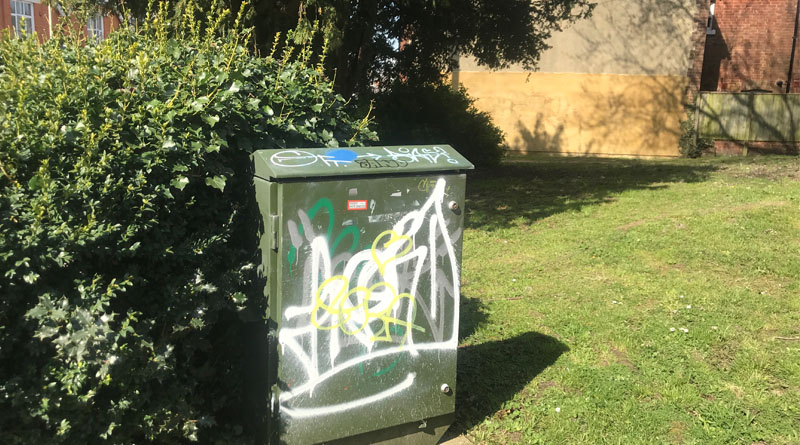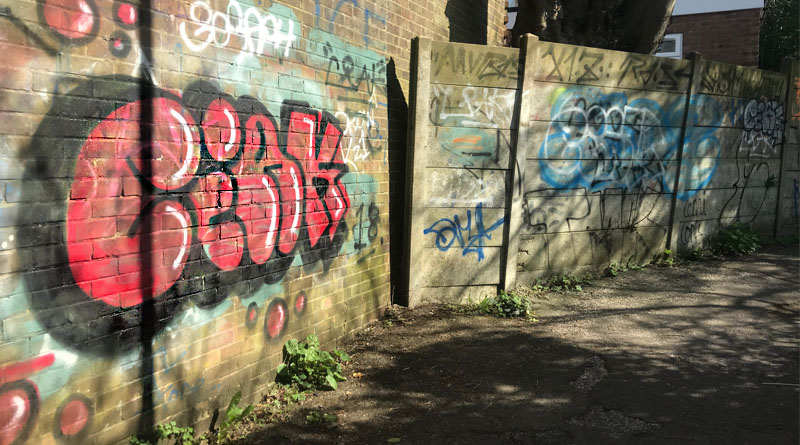Harsher consequences for Canterbury graffiti artists
Information that may convict taggers could warrant a reward of up to £500 after previous failed attempts to combat graffiti artists, it has been revealed last week.
This comes after tagging offences increase in the city, causing eyesore and a blight on landscape.
The Anti-Social Behaviour Act 2003 rules the sales of spray paint to people under the age of 16 illegal and gives local councils the power to order the removal of graffiti from private property.
However, councillors believe this isn’t enough to deter people from spray-painting the city.
Councillor Ashley Clark said:
“I’m not going to call it (graffiti) an art form. The epidemic of criminal damage, it is totally in the public interest to put these people before the court.
“Unfortunately, our officers do the best they can, but they do not have the powers of stop and search or powers of arrest. They can’t search houses and find additional evidence of tags.”

Councillor Joe Howes opposed Clark’s view, stating the definition of graffiti needs to be distinguished before acting.
“Tagging is what offends and upsets most people. We can have graffiti in terms of people sketching, we can have tagging, we can have public displays of art, such as murals.
“These are all forms of graffiti.”
Some councillors believe there should be harsher consequences for offenders, such as fines and jail time – and that the crimes are being committed by a minority in the area.
Whereas other councillors have opposed this view, and are even encouraging murals in their district.
Councillor Robert Thomas revealed he was looking at a tagging cover-up project by encouraging community murals, working with local artists and turning the ‘crime’ into a community project.
The council will continue to discuss further action that could be taken.
If you know of any incidents of tagging, please report it to Kent City Council here
